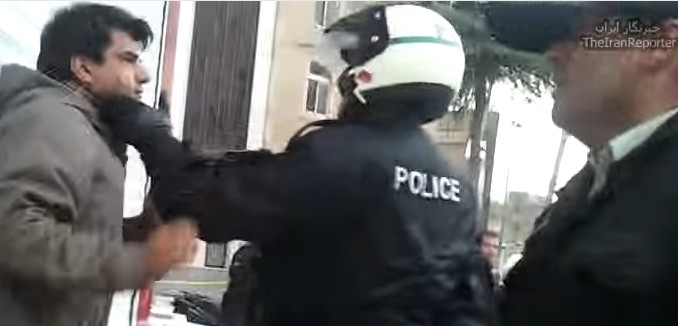Ahmed Shaheed and David Kaye, respectively the UN’s Special Rapporteurs for the human rights situation in Iran and for the right to freedom of opinion and expression, called on Iran to stop intimidating journalists “as the country prepares for parliamentary elections early next year,” in a statement released Wednesday.
The statement appears to have been prompted by the arrest of five journalists, including Afarine Chitsaz, Ehssan Mazandarani, Saman Safarzai, and Issa Saharkhiz, earlier this month. According the statement, Iranian media reported that the reasons for their detainment were “suspicion of taking part in an infiltration network, seeking to influence public opinion and undermine the Islamic Republic on behalf of western governments.”
Shaheed warned that the, “Increasing intimidation of journalists is hindering their ability to operate freely in the country,” and added that, “The government of Iran should not silence critical or dissenting voices under the guise of vague and unsubstantiated national security concerns.”
Kaye similarly emphasized that, “Public participation in any electoral process is virtually impossible if the media and civil society are so frequently affected by arrests and prosecution,” and noted that UN experts had raised similar concerns before the 2013 elections in Iran. He also called on the Iranian regime to guarantee “a greater space for free exchange of ideas in the run-up to elections.”
Iran’s crackdown on journalists is the continuation of an aggressive campaign to limit civil liberties and dissent by the Iranian Revolutionary Guard Corps (IRGC), whose influence is only expected to grow a result of the nuclear agreement signed between the regime and the P5+1 nations in July.
Iran’s government has responded to Shaheed’s efforts to report on the civil rights situation in the Islamic Republic by forging documents suggesting that he was paid by Saudi Arabia to portray Iran in a negative light.
Last month, Shaheed issued a scathing report documenting the government’s meting out of brutal punishments and what he called “its unprecedented assault on the right to life.”
According to the Associated Press, two Iranian poets were imprisoned and sentenced to 99 lashes apiece for shaking hands with members of the opposite sex. In the same report, the AP noted that at least 30 journalists have been arrested by the regime by the end of 2014, including Washington Post reporter Jason Rezaian, who was detained in Iran’s notorious Evin prison for over a year before being convicted of espionage in a secret trial.
In Should the U.S. Take Iran’s Human Rights Problem More Seriously?, which was published in the April 2015 issue of The Tower Magazine, senior editor Ben Cohen highlighted Shaheed’s efforts to document Iran’s human rights situation, which has worsened since the election of Hassan Rouhani as president two years ago.
[Photo: TheIranReporter / YouTube ]




